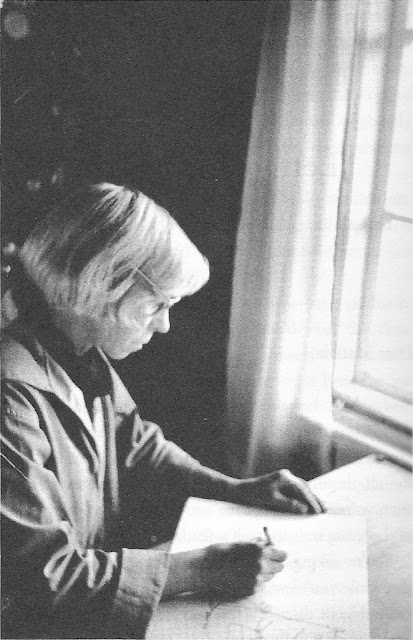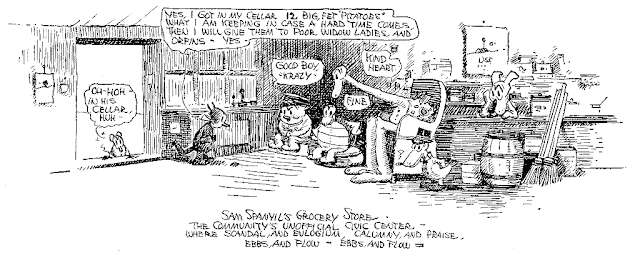Michaelmas term lately begun (and the school I went to was pretentious enough to have a Michaelmas term), my A-level English class was presented with Penguin paperback copies of Charles Dickens’
Bleak House. It was explained that we would read one of its twenty monthly parts each week, that this would not be done during class time, but that we would be discussing the novel as we progressed (sample discussion: ‘Now that we have finally encountered the house, did you notice anything about it? No? Well, it’s not very bleak, is it?’). This being the era of
Neighbours (early ’90s) it was suggested that we might like to think of it as a soap opera. That didn’t wash, of course. We were horrified at the thought of being made to read such a large novel: English was supposed to be easy, and this had an uncomfortable ring of work to it. Had it been a bad, or a more difficult book, or less to my taste, I’m sure I would have remained horrified and joined in the chorus of protest which was the undercurrent to those twenty weeks (including holidays, mind). But it didn’t turn out that way:
Bleak House probably remains the book which has done the most to enlarge my conception of what a novel can be, with its massive, squalid, impenetrable version of London and its host of unapologetically good and brazenly bad characters trying to make their way through it.
Since then, my estimation of Dickens has soared, dipped, fallen through the floor and finally – or at least currently – stabilised at around 30,000 feet. The reasons are standard issue stuff: he’s too sentimental, and all his characters are caricatures. Both charges could be laid against
Bleak House, whose narrator Esther even our Dickens superfan teacher admitted was ‘a drip’, and many of whose characters revolve around a single idea (Mr Smallweed, Mrs Jellyby, Mr Turveydrop, Miss Flite). But the accompanying third person narrative, which imperiously delivers the non-news regarding the intractable Jarndyce & Jarndyce court case, and the stasis at the weary country seat of Chesney Wold, is as tactile as language can be, and it holds the novel’s characters suspended in its miasma, making them add up to something after all. Characters from other novels are genuinely endearing – a mention of Wemmick on the radio the other day made me smile, though it is years since I read
Great Expectations. Once you’re caught, it is impossible not to engage with Dickens’ fictional world through feelings rather than thoughts, and the great strength of Michael Slater’s biography is that it is dispassionate enough to lay out the facts as we have them, without getting bogged down in emotional reactions to the writing itself.
As a writer, the key thing about Dickens is his commanding authorial voice. Slater makes the point that he was equally capable of using this satirically and sincerely. His 1842 trip to America brought out his devious side: every speech he gave was at least partly about the lack of an international copyright agreement, which meant that he didn’t earn any money from sales of his books there. It is easy to understand his frustration, but what is underhand is the way he distanced himself from his own argument. Walter Scott’s financial collapse was his chief example of why such an agreement was necessary (Scott was eight years dead at the time he was speaking), and he also organised a petition amongst literary Brits – including his friend and biographer John Forster – which he presented in the States as though he had nothing to do with it. What makes this especially interesting is that it directly preceded the creation of arch-hypocrite Seth Pecksniff, in
Martin Chuzzlewit. The way Slater charts events, Pecksniff may not have been simply a reaction against hypocrisy, he may also have embodied Dickens’ recent experience of that condition.
Much later, Dostoyevsky (!) reports:
He told me that all the good simple people in his novels […] are what he wanted to have been, and his villains were what he was (or rather, what he found in himself), his cruelty, his attacks of causeless enmity towards those who were helpless and looked to him for comfort, his shrinking from those whom he ought to love, being used up in what he wrote. (p. 502)
This ‘causeless enmity’ is most apparent in the treatment of his wife Catherine, whom he gradually excluded from his life during 1857-8, after having fallen in love with Ellen Ternan, an actress 27 years his junior. There is something deeply unpleasant in Dickens’ withdrawl from his responsibilities as a husband. One could forgive him for admitting to his changed feelings and moving on to a new relationship, but instead he constructed a revisionist narrative in which he never cared for Catherine at all. He could have mitigated an unfortunate situation by treating her as an adult, explaining things, according her some dignity. Instead he undercut her whole existence, using his great rhetorical skill as a weapon. Completely out of his league in conversation, she was also a mother without affection, who had somehow borne him ten children before he noticed anything was wrong. Catherine doesn’t emerge as a strong personality, but equally there is no indication that she deserved this treatment. Friends of the couple (including Forster) seem to have been fond of her, and the saddest moment in the book, appropriately in parentheses, is this:
During the two weeks that he and [Wilkie] Collins were away his only letters home were to Georgina (we can infer this from the fact that Catherine seems to have kept every letter he ever wrote to her and when dying asked her youngest daughter to deposit them in the British Museum ‘that the world may know he loved me once’). (p. 436)
Dickens fell out with his publishers over their refusal to print a statement about his marriage in
Punch, and moved swiftly to put an end to
Household Words, the weekly journal he edited for them. His first idea for the title of a succeeding publication (eventually
All The Year Round) was ‘Household Harmony’, which beggars belief somewhat.
Duplicity is something of a theme, though: his whole life long, Dickens kept his early history secret. His father’s imprisonment for debt, and his own time spent working in a blacking (shoe polish) factory as a child labourer, only became widely known with the publication of Forster’s posthumous biography. He played a game with his public, telling and not telling them of these experiences, which appear, slightly fictionalised, in
Little Dorrit and
David Copperfield. Many times Slater makes the point that the most important relationship of Dickens’ life was not with Nelly Ternan, or Maria Beadnell (an early, unrequited love), but with his reading public. Towards the end of his life, his wildly popular public readings build to a crescendo as his health fails, and his introduction of a ‘Sikes and Nancy’ reading late on (which causes audience members to faint, in Dickens’ own account) leads to a deepening of his obsession with murder, and eventually to his last, unfinished novel.
















